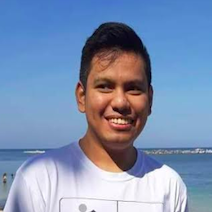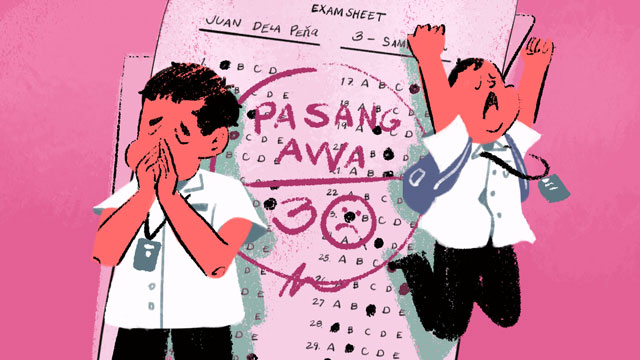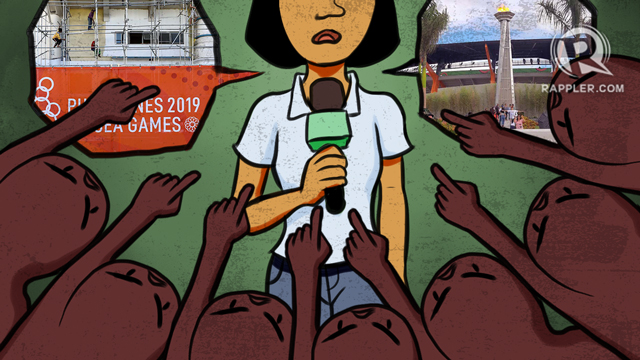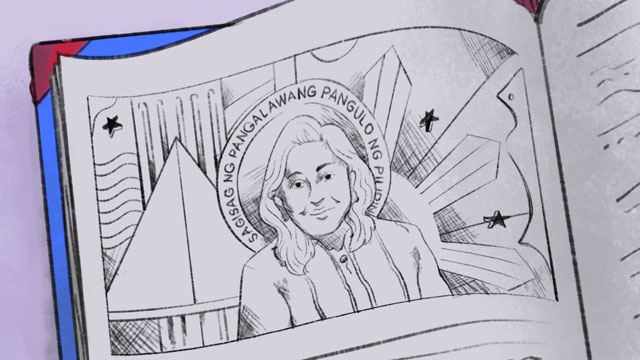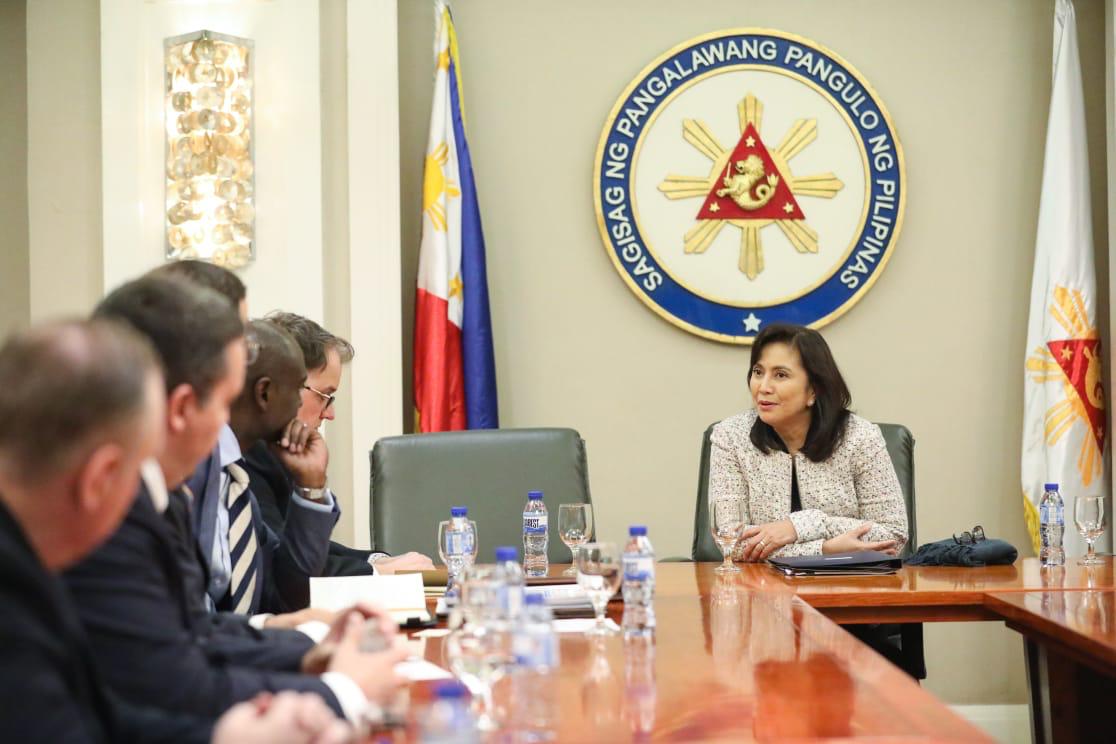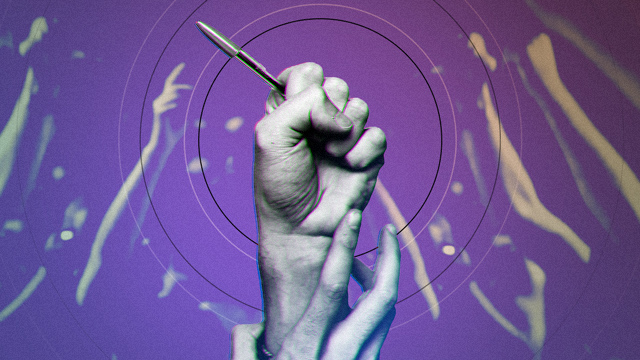![]()
Anyare?! Paanong mula sa pagiging tagapaghatid ng balita ay naging buntunan ng sisi ang media sa mga nangyaring kapalpakan sa pagsisimula ng Southeast Asian Games 2019? Paanong naipihit ng gobyerno (sa tulong ng online propaganda machines nito) ang sisi mula sa organizers ng SEA Games papunta sa media na nagbabalita lang ng mga pangyayari?
Inaral ng Rappler ang isang linggong galaw ng mga social media platforms na kilala bilang propaganda machines na sumusuporta sa gobyerno. Nakita kung paanong ang focus ng balita mula sa iba’t ibang problema sa pagsisimula ng SEA Games ay biglang natuon sa mga tagapaghatid ng balita: ang media.
Hindi naman bago ang modus na ito. Tulad ito ng organisado, systematic, at tuloy-tuloy na atake sa mga lehitimong media sa nakaraang 3 taon. Kadalasan, nag-uumpisa sa isang problema (o mga isyu) tungkol sa kapalpakan ng gobyerno o mga opisyal nito. May mga totoong tao na nagrereklamo, at bilang trabaho nila, irereport naman ng media kung ano man ang sinabi ng nagrereklamo. Tapos hihingin ng media ang panig ng gobyerno. (BASAHIN: Propaganda war: Weaponizing the internet)
Pero sa ilalim ng administrasyong Duterte, hindi tugon ang makukuha ng media kundi atake. Imbes na sagutin (puwede namang i-deny lang nila), pupulaan lang ang mga reporter na nagbalita. Maglalabas ng quotable quote ang Palasyo, at ito ang nagsisilbing hudyat sa propaganda machine para sa kanilang messaging. Uulit-ulitin ang soundbite. Sa pamamagitan ng social media platforms at ilang batalyong accounts na kilalang supporters ng Pangulo, kukuyugin ang mga posts ng legitimate media at pupulaan ang mga report ng media at sasabihing fake ito – kahit wala silang ipinapakitang ebidensiya. Sa huli, ang objective ay birahin ang nagbabalita, gawing katawa-tawa ang kanilang mga report, at mawala ang focus ng mga tao sa tunay na laman ng balita. Galit, panghihiya, at pagmumura lang ang puhunan ng trolls. (BASAHIN: Fake news in the Philippines: Dissecting the propaganda machine)
Nitong mga araw bago magbukas ang 30th SEA Games, ganun pa rin. Mga halimbawa ng report: “Hindi sapat ang pagkain na inihain sa hotel para sa mga atleta,” “Ilang oras na pinaghintay sa airport ang mga bisitang atleta…at sa maling hotel pa naihatid,” “Mga volunteers ng Palaro, litong-lito na sa kawalan ng sistema,” “Pinuna ng senador ang gastos sa pagpapagawa ng kaldero,” “Ilang araw na lang magbubukas na ang Palaro, pero hindi pa tapos ang venues.” (BASAHIN: The devil's in the details: 10 logistical blunders at SEA Games 2019)
Ang isasagot lang ng online Duterte supporters ay: “Hindi totoo 'yan, 'yung kakilala ko ay nakakain naman!” “Walanghiya ang volunteer na 'yan; hindi ganyan ang naranasan ko!” “Mga talangka talaga kayo, kayo pa ang nagpapahiya sa ating bansa!” “Sana tumulong na lang kayo, puro kayo nega!” “Gusto 'nyo talagang matalo ang mga atletang Pinoy!” “Mga dilawan!” “Fake news 'yan!” atbp.
Wow.
Hello?
Kailan pa naging trabaho ng media ang baguhin ang nakalap na balita para lang pabanguhin ang gobyerno?
Kailan pa naging kontra-atleta ang pagre-report sa mga puna na galing mismo sa (o problemang naranasan mismo ng) mga atleta o coach?
Hellooo??! Ilang bilyong pera ng bayan ang gagastusin d'yan sa Palarong 'yan, tapos gusto 'nyo tahimik lang ang media sa mga kapalpakan ng organizers? Ano kayo, nanalo sa lotto? Eh kahit nga nanalo sa lotto hindi nakakatakas na maging balita eh.
Anyway, 'yun na nga. Inaral ng Rappler ang isang linggong galawan ng mga information (sa totoo: propaganda) machines na supporters ng gobyerno at kung paano nila sabay-sabay na ipinihit ang mga balitang tungkol sa mga problema sa SEA Games para sa dulo, ang media ang palabasing may kasalanan. Sa ganitong paraan, mawawalan ng audience ang tunay na media at puro “magagandang balita” na lang ang ipapakain sa tao.
May basis ba ang claim na ipinihit ito? Yes naman. Pinag-aralan ng Rappler ang mahigit 1,500 na mga balita mula November 18 hanggang 29, 2019. Gamit ang natural language processing, pinagsama-sama ng Rappler ang mga istoryang lumabas sa media ayon sa tema nila at habang nagsusulputan ang mga reklamo tungkol sa SEA Games. Tatlong clusters ng balita ang nakita:
- mga report tungkol sa mga atleta at mga sports nila
- mga report tungkol sa mga paghahanda ng bansa bilang host ng SEA Games
- iba pang report na related sa Games, tulad ng traffic reports, security, atbp.
Hindi totoo na puro “bad news” lang ang inireport ng media. Ang dami kayang “feel-good” at inspiring na kuwento ng mga atletang lalahok sa SEA Games.
Kailan ba nag-umpisa ang sinasabing mga “bad news” na pakana raw ng media? November 8 'yun, nang isiniwalat ni Senador Franklin Drilon ang tungkol "kaldero" (cauldron) na sisindihan sa SEA Games sa New Clark City sa Tarlac – nagkakahalaga ng P50 milyon lang naman! Siyempre, nanggalaiti ang mga tao! Siyempre kumalat 'yun! Kasalanan ba ng media na 'yun ang isa sa pinaka-shared na istorya sa social media? Naku naman! (BASAHIN: 'Kaldero ng Diyos': Netizens shocked by P50-million SEA Games cauldron)
At hindi nasagot nang maayos ng organizers at gobyerno ang isyung 'yan.
Pero umpisa lang pala 'yun. Noong November 24, sumambulat na ang maraming balita ng kapalpakan sa pag-welcome ng mga atleta mula sa iba’t ibang bansa na maagang dumating sa Manila. Halos lahat ng media groups (hindi lang Rappler) ay nag-report sa mga reklamong malayang ibinigay ng mga na-interview nilang mga bisita o witness. Siyempre, news-worthy 'yun. Nakakahiya man, balita pa rin 'yun. Mula sa balitang naghintay nang matagal sa airport bago nasundo, hanggang sa report na sa maling hotel inihatid, hanggang sa mga hotel na hindi pa pala handa ang mga kuwarto para sa mga atleta, kaya may mga natulog sa sahig at upuan, hanggang sa kung ano ang kinain nila sa breakfast, at marami pang iba. Lahat 'yun ay kuwentong galing sa mga bisita mismo – hindi fake, hindi gawa-gawa ng media, sila lang ang nag–report. (BASAHIN: Hotel denies shabby treatment of SEA Games athletes)
Karma nga naman.
Habang lumalabas ang mga report tungkol sa kapalpakan, umuugong sa reactions, emoticons, shares sa social media. Totoo naman 'yun ah: bad news travels fast! Nag–trending ang hashtag na #SEAGamesFail mula November 25 hanggang sa mga sumunod na araw. (Hindi rin naman galing sa media ang hashtag na 'yan, 'noh?)
Bilang chair ng Phisgoc – ang private entity na binasbasan ni Presidente Duterte mismo para maghanda sa SEA Games – nangahas maghanap ng masisisi si Alan Peter Cayetano. Sinisi niya sina Senator Drilon at ang oposisyon na dahilan daw kung bakit may mga kapalpakan sa arrivals at sa accommodations, pati na sa mga SEA Games venues na hindi natapos on time, atbp. Kasi nga raw, sina Drilon at ang dilawang oposisyon ang umipit sa budget. (BASAHIN: Drilon questions inclusion of P7.5-B SEA Games budget in DFA)
Laos.
Walang kumagat.
Walang naniwala na sina Drilon ang may sala.
The next day, November 27, ayan na. Umentra na ang isang bagong karakter sa mala-telenovelang takipan at sisihan: si Congressman Ron Salo ng Kabayan Partylist. (Kilala 'nyo ba siya bago ang SEA Games? Kami rin hindi.) Siya (at siyempre, si Alan Peter Cayetano) ang nagsabi na may mga grupo ng media na nagkakalat ng disinformation at fake news kung kaya’t maraming bad news daw, at dapat daw imbestigahan ng Kongreso. Sa puntong ito, parang inihudyat na nina Cayetano at Salo (pati na rin ni Phisgoc COO Suzara) nang todo ang pag-atake ng propaganda machine sa bagong scapegoat: ang media. (BASAHIN: Don't blame media for SEA Games woes - NUJP)
Media raw ang may kasalanan.
Media ang may kasalanan. Media ang may kasalanan. Media ang may kasalanan.
Paulit-ulit na mantra nila magmula nung araw na 'yun.
Diyan nag-umpisa ang surge sa social media ng bagong narrative: Media ang dapat sisihin. Hindi ang SEA Games organizers. Hindi ang Pangulo. Media daw.
Sa pag-momonitor ng Rappler (tingnan ang gumagalaw na graph sa ibaba), malinaw na ang gobyerno at ilang mga tagapagsalita nito ang nagbigay ng signal sa mga social media groups nila na iisang narrative ang dapat lumutang.
By November 27, napa-trending na ang hashtag na #SEAGamesnotafailure pati na rin ang #WeWinAsOne para sabihin ang dalawang bagay:
- na media lang ang gumagawa ng bad news
- bilang Pilipinong mapagmahal sa bayan, dapat (daw) suportahan na lang ang mga atleta at tigilan na ang puna.
Pilit nilang ibinaon ang mga isyung dapat panagutan ng mga organizers. Saka na raw ang sisihan.
Pero ang gusto nilang naratibo: media ang sisihin sa bad news.
Sino-sino ang pro-government influencers at online propaganda groups sa social media na dating tulog lang tungkol sa mga kapalpakan ng SEA Games ang biglang nagising at naging active na naman para ikalat ang bagong mensahe na media ang kaaway? Kilala na natin sila. The usual names. Sa mga pages: CrabblerPH, Mocha Uson Blog, at DuterteToday. Duh. Sa mga content producer naman: sina Krizette Laureta Chu at Mark Lopez ang pinakaaktibong magsulat ng kung ano-ano, na ikakalat naman ng mga kapanalig nila (tao man o bot). Nung kasagsagan ng mga isyu sa SEA Games, sumali pa ang notoryus na DOJ prosecutor na propagandista din (sumikat minsan dahil gusto niyang ipapatay na parang ipis ang mga “Dilawan”/ kritiko) – si Darwin Cañete. Kung pagsasama-samahin ang kanilang pagpapakalat ng mga propaganda tungkol sa kung sinong dapat sishin sa SEA Games, sina Chu, Lopez, at Cañete ay nakapag-generate ng 107,690 interactions sa loob lang ng isang araw. (BASAHIN: State-sponsored hate: The rise of the pro-Duterte bloggers)
Parang may switch na pinaandar lahat ang kanilang network sa social media. Ilang oras pagkatapos sabihin nina Cayetano at Salo ang mensahe na “media ang dapat sisihin sa bad news,” matagumpay na dinala ng mga pro-Digong social media groups, pages, at accounts ang mensaheng ito. Kahit wala ni katiting na ebidensiya. Basta ikalat lang na media ang may kasalanan. Nalampasan nila ang iba pang news organizations sa pagkakalat ng balita. (Tingnan ang network map sa ibaba kung saan makikita ang pagsambulat ng mensahe tungkol sa media: mula sa mga content creators hanggang sa “linkers” na nagpapakalat nito sa ibat-ibang grupo online. Hanep!)
(Click and drag slider to move between slides)
Nakita din ng monitoring ng Rappler kung paano ang mga lehitimong news organizations ang nasa sentro ng mga magkabilaang usap-usapan sa social media: sa isang banda, sini-share ang mga SEA Games posts/content nila ng mga kritiko ng gobyerno, at sa kabilang banda, sila ang tinutukang atakehin ng mga online propaganda networks na pro-Duterte.
Batay sa obserbasyon ng Rappler sa mga pro-government propaganda networks na mino-monitor nila, November 26 pa lang (bago pa maisip ni Cayetano na media ang gawing scapegoat sa SEA Games “imperfections”) ay naabot na ng mga ito ang 1.1 million total engagements sa loob lang ng isang araw. Huwaw! Buhay na buhay po sila.
Kagaya sa Facebook, ganoon din ang naging pihit sa Twitter. November 27 din nag-peak ang pag-atake sa media. (Tingnan ang mga cluster ng mga tema ng posts sa Twitter: parehong mensahe ang ikinakalat para sisihin ang lehitimong media sa kabila ng kawalan ng ebidensiya.)
Ang galing, di ba? Mula sa pagiging tagapaghatid lang ng balita, naging root of all evil ang media! Magical pihit. Masaheng malupit. Hindi matanggap ang mga report mula sa mga totoong mga taong nagreklamo, at mga retratong di nagsisinungaling (na kinokontra lang nila ng mga bagong retrato, kasi nga naman minadali nang tapusin ang mga venues pagkatapos ulanin ng puna), at biglang...tadaaaaa!...media ang dapat sisihin. Media ang may kasalanan ng lahat ng ito.
Again, hindi naman na ito bago. Ilang taon na rin itong nangyayari. Itong monitoring ng Rappler ng galaw ng news at information (at propaganda) online ay muling nagpapatunay lang kung saan nanggagaling ang mga mensahe na ikinakalat bilang propaganda, kung ano-anong content-creators at ilang linkers ang magkakakabit na nakakapagpa-trending ng mga hashtag para lang matabunan ang ilang mga isyung hindi matanggap ng mga dapat managot, at kung paanong patuloy pa rin ang giyera laban sa media para tuluyan nang mawala ang isang daluyan ng mga lehitimong puna at kritisismo ng taong bayan.
Ron Salo, tingnan mo ang mga graph at baka nandito ang hinahanap mong "organized inauthentic online behavior.” Mas marami nang di hamak ang nagpa-trending sa mga akusasyon mo laban sa media kesa sa sinasabi mong paninira na gawa-gawa lang ng media. Congrats at viral ang naging mensahe mong walang pruweba. – Rappler.com
Gus Cerdeña is an NGO worker (or a "social development worker," if you go by the job he writes on his departure cards). Lately, he realized that his unarticulated dream is to be a tabloid writer. His favorite pastime is to troll trolls online. What he writes, though, online or anywhere else, has nothing to do with his NGO work; they’re a product of his own frustrations. He is NOT a morning person.
![]()
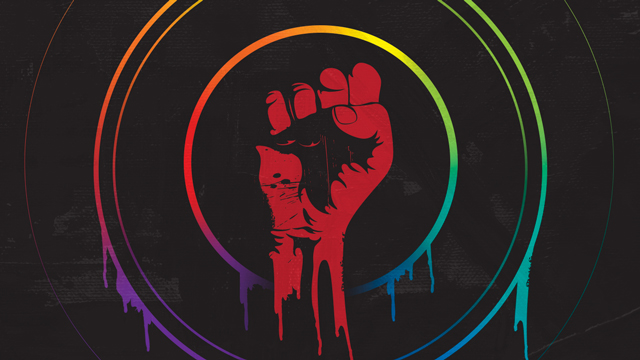
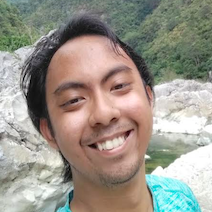

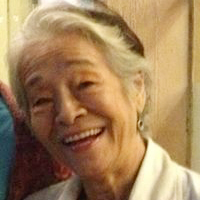

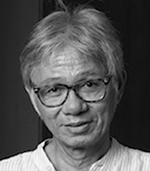
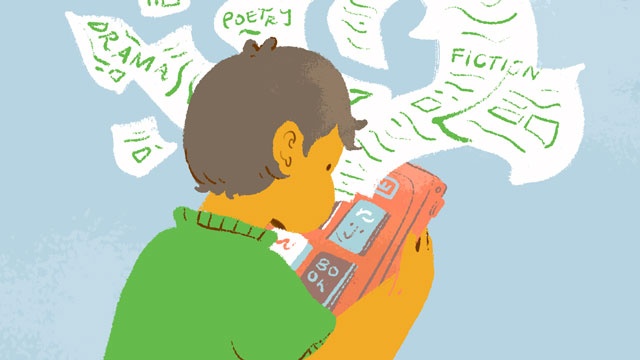












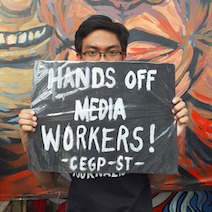

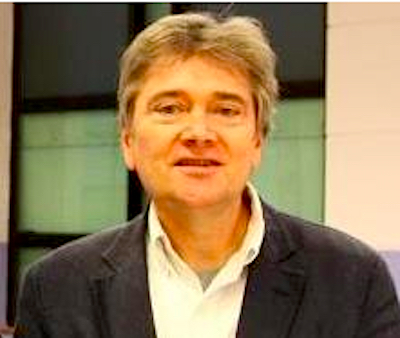
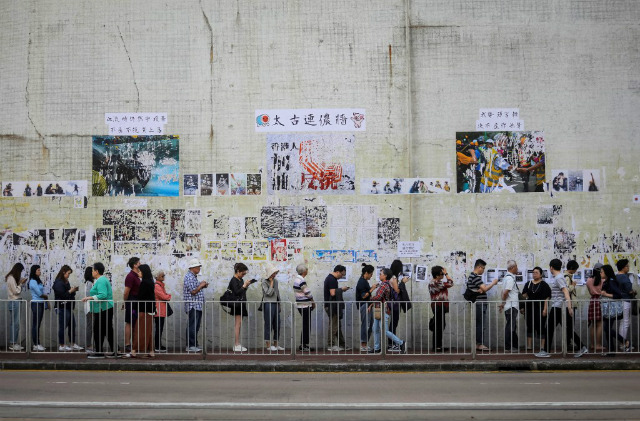
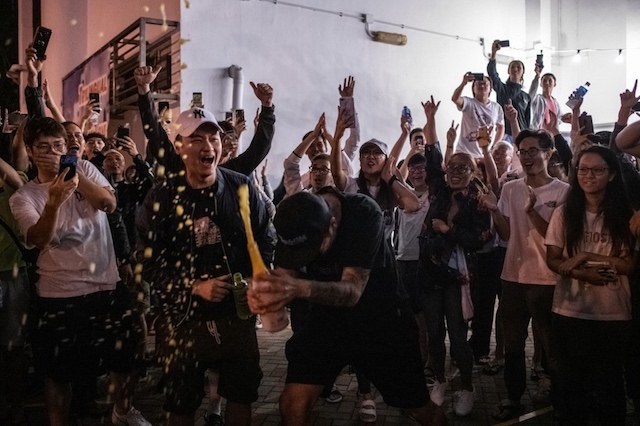

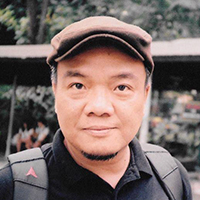 Mali ka ng akala. Hindi ito tungkol sa mga naglipana at nakakatawang “Mahal ka ni Ninong” memes sa social media hinggil sa nalalapit na Pasko. Bagamat masasabi kong tungkol din ito sa aginaldo, pero ang mas malalim at nakasisira sa lipunang aginaldo.
Mali ka ng akala. Hindi ito tungkol sa mga naglipana at nakakatawang “Mahal ka ni Ninong” memes sa social media hinggil sa nalalapit na Pasko. Bagamat masasabi kong tungkol din ito sa aginaldo, pero ang mas malalim at nakasisira sa lipunang aginaldo. 
